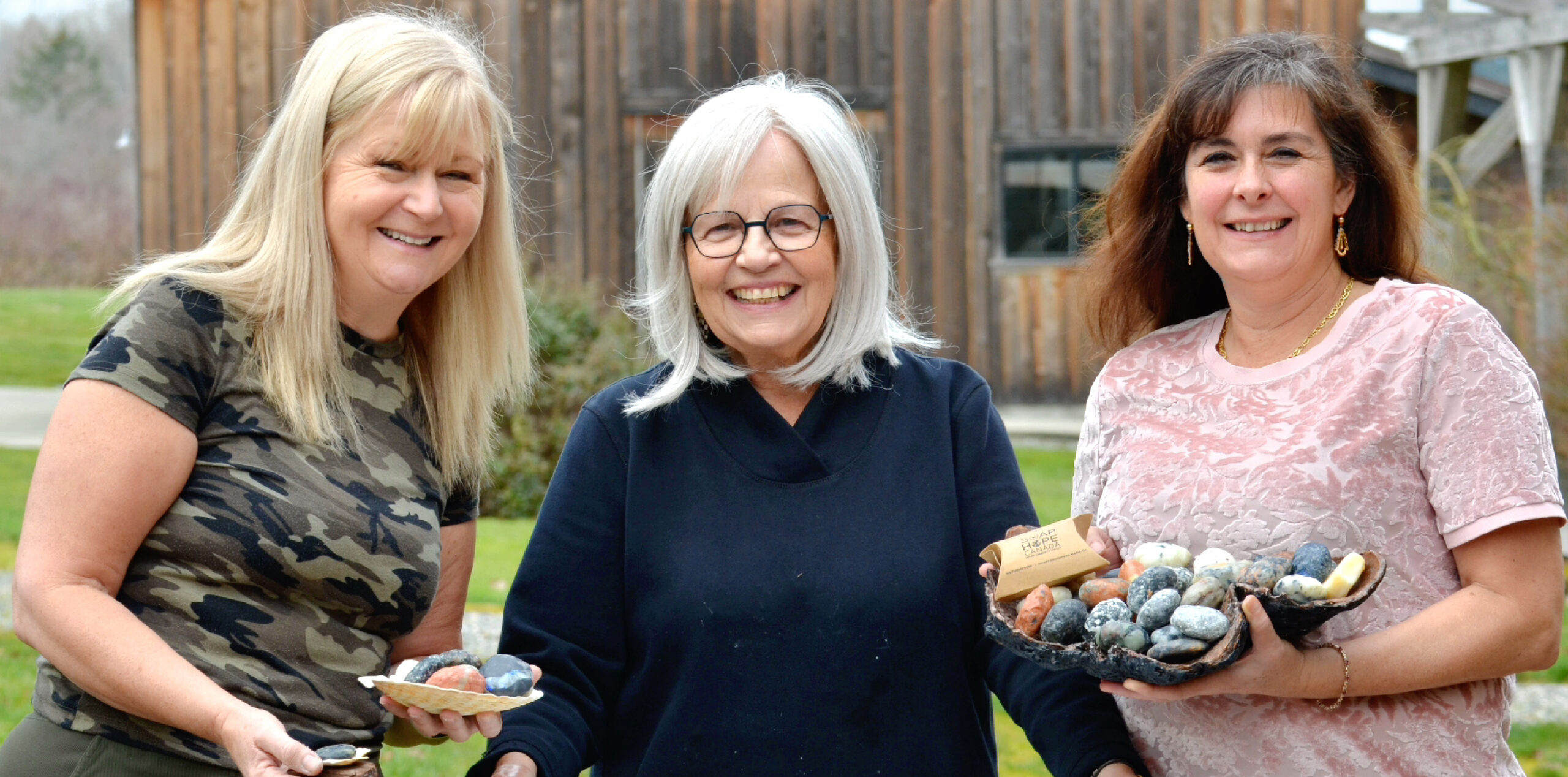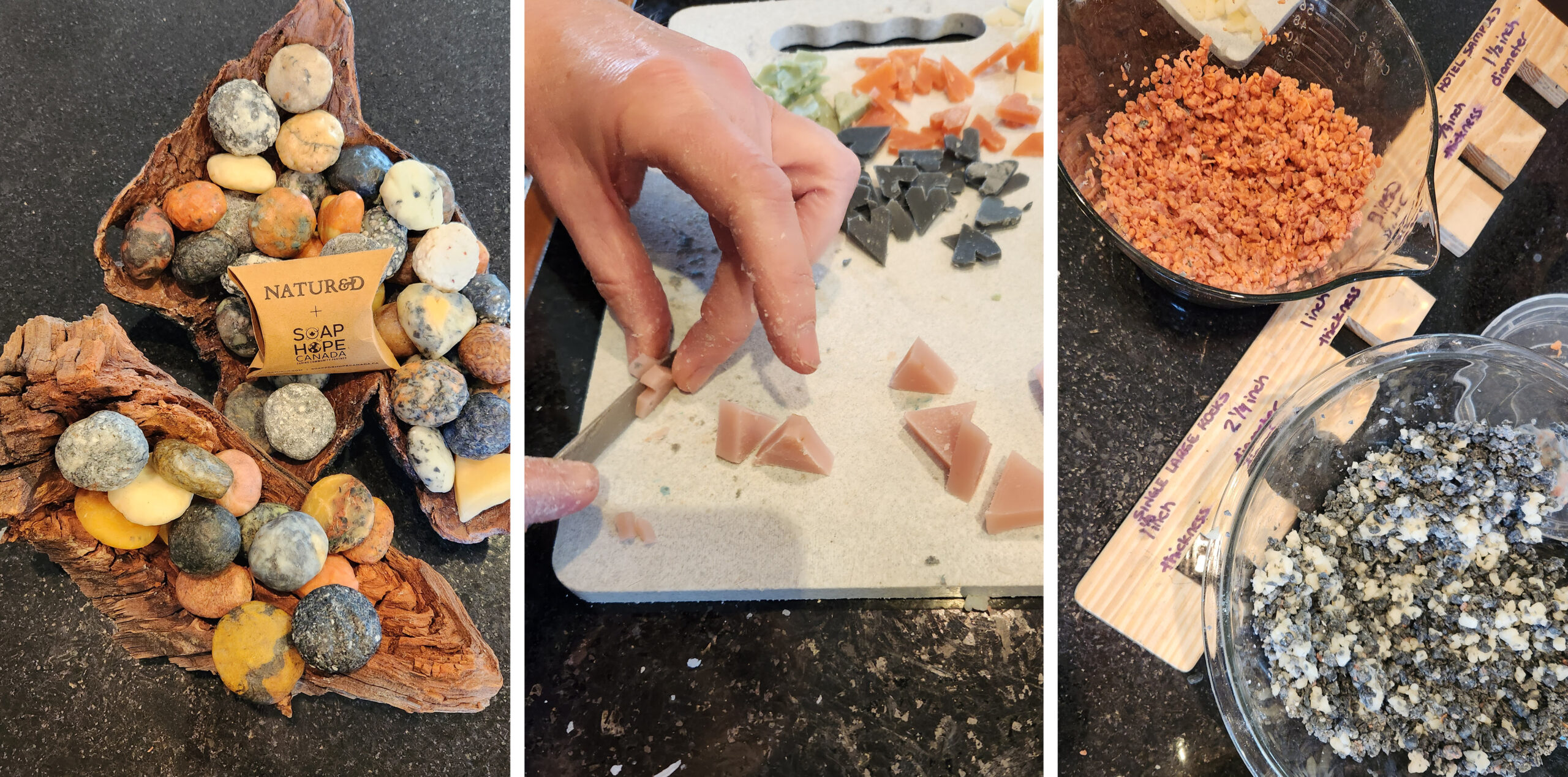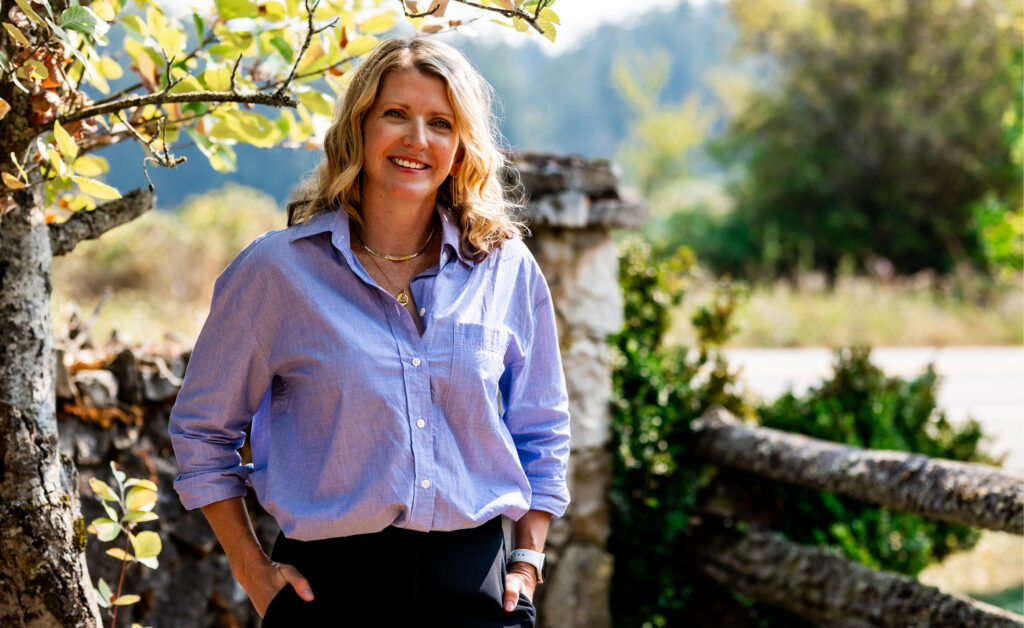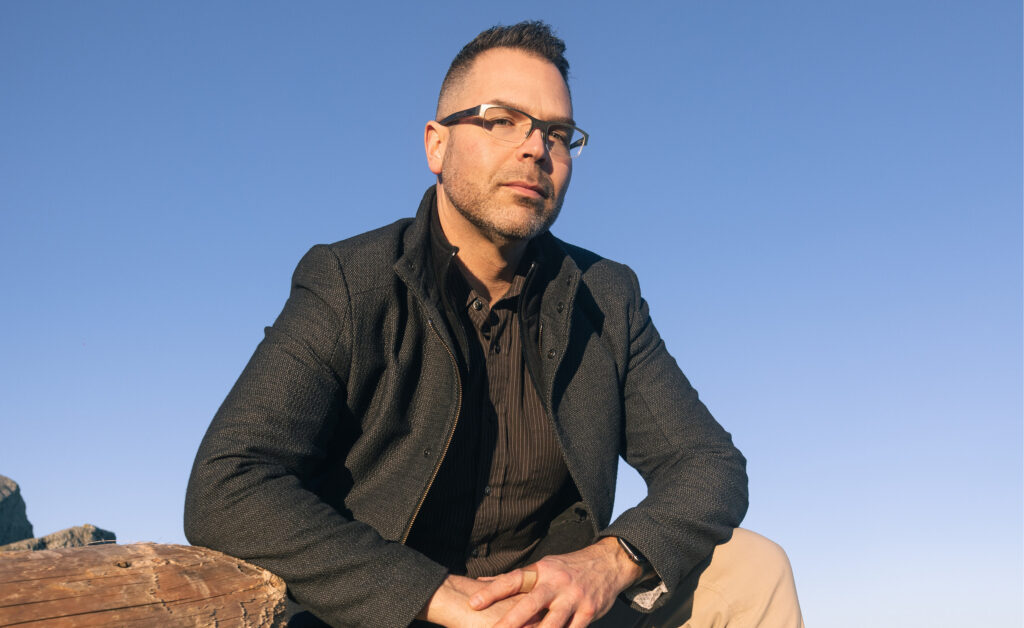by Jesse Holth | photos by Scottee Giles –
Anne-Marie Daniel, the founder of North Saanich-based research company NatuR&D, gets her inspiration from biomimicry – the idea that nature has already designed the perfect solution to any problem. “How can we learn from nature and innovate based on natural designs?” One recent invention is their Salish Sea Soap Pebbles, created from organic factory offcuts, made with activated charcoal and a variety of natural clays.
“This product is really about putting something into the world that’s good for people and the planet,” explains Anne-Marie. “I had the idea about 20 years ago. I’ve always wanted a soap that doesn’t look terrible as it gets smaller, and I thought about how rocks are so much prettier when they’re wet. I also wondered what would motivate a person to take soap home with them, especially in hotels where so little of it is used?”
It wasn’t until she encountered Anne McIntyre, founder of the non-profit Soap for Hope Canada at a “Power to Give: Social Impact Academy” in Tofino, that a plan started to take shape. “We were on the beach with pebbles, and I mentioned how I’d always wanted to make soap pebbles – it turns out they had organic soap offcuts that were just going to be thrown away,” says Anne-Marie. “It took about four months to make the dream a reality. It’s a beautiful quality soap; one of the manufacturers even makes it with recovered CO2 from HVAC systems in Alberta, which means less greenhouse gases in our atmosphere.”
Soap for Hope Canada was the perfect partner: they transform discarded products that would otherwise end up in landfills and distribute them to people in need, from remote communities and underserved groups to women fleeing violence. “Anne really knows how to get product to and from B.C. and Alberta, and how to connect people with vendors,” Anne-Marie says. In 2022 alone, Soap for Hope diverted 136,110 pounds of used products from the landfill and distributed 2.76 million products to local facilities in need.
“We got connected with our vendors, and it just started flying off the shelves,” says Anne-Marie. You can find Salish Sea Soap Pebbles at the Sidney Pier Hotel & Spa, Ecotopia Naturals, Deep Cove Market, Zero Waste Emporium, and Market 1750. The factory offcuts are virgin organic soap that has never been used and would otherwise be wasted. This kind of “zero waste” product is critical for the environment – it keeps valuable stock in circulation, diverts waste from landfills and reduces our overall consumption.
Ready to get your hands dirty? You can join in and make the soap pebbles yourself as a volunteer, or as part of a fundraising team. “We provide the supplies, and you come and make the product which you can then sell to raise funds,” Anne-Marie says. “This allows us to provide funding for communities in need, for all kinds of different projects.”
The distributors have generously donated their retail space and volunteers help to run the initiative, meaning that all funds from the soap pebbles are reinvested in the community. “100% of the proceeds goes toward community projects,” Anne-Marie explains. They have been able to support local projects like the SȾÁUTW̱ (Tsawout) Bighouse and provide assistance to low-income seniors. “What allows us to do this is the kindness of community, including the companies that donate the soap offcuts; there’s a lot of goodwill circulating,” says Anne-Marie. “Our volunteers are talented and willing to be organized and really believe in the cause.
“We’re also working with Camosun Innovates to make a soap dish with materials that are nature-friendly,” she adds. “The idea is that if it ended up in a ditch, it would be nourishing to nature!” Anne-Marie says that the packaging will look like a clamshell, and will be made out of other nature-based waste streams from local agriculture. “We’re continuing with the idea of a circular economy, a triple bottom line: people, planet, prosperity. We want to have that perfect product, with a focus on the people-planet connection.”
“Our health and the health of the ecosystem are the same thing: we are not different from nature, we are part of nature. That’s why we focus on products that are good for both – it’s kind of the whole point.”
Photo at left, L to R: Michelle Bourgeois, Heather Chisholm and C. Anne McIntyre.





